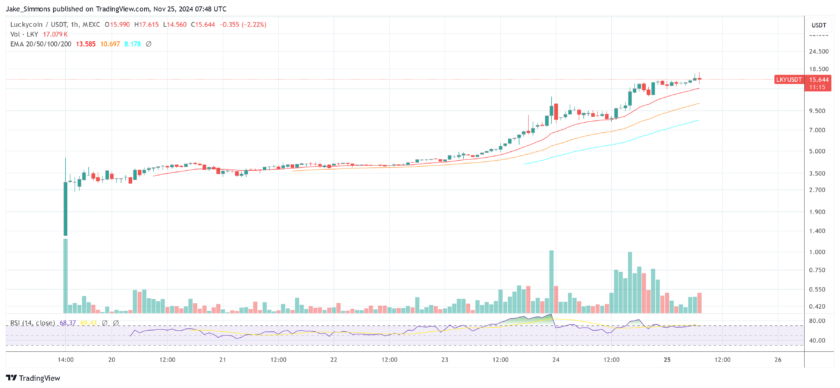Senator Cynthia Lummis, the first senator in the history of the United States to own Bitcoin, has revealed plans to launch a Financial Innovation Caucus to educate her fellow senators on cryptocurrency and digital assets.
Appearing on Anthony Pompliano’s podcast on Feb. 2, Lummis announced her intention to establish the caucus, stating:
“We hope to use it as a springboard to educate members of the U.S. Senate and their staff about Bitcoin specifically, but about other opportunities for cryptocurrency and financial innovation and blockchain.”
Lummis stated the caucus will first work to fight the false narrative about digital assets and crypto being used for money laundering, noting that research from blockchain forensics firm Chainalysis indicates “cryptocurrency-related crime is smaller than criminal activity with cash.”
Lummis noted she recently spoke with treasury secretary Janet Yellen — whose recent comments regarding the use of crypto in illicit financing caused concerns regarding an incoming regulatory crackdown to reverberate across the crypto-sphere.
Lummis sought to quell concerns about Yellen, describing the treasury secretary as having “an open mind” about crypto. However, the senator stated: “It’s going to take a lot of work to get to where we can have an open dialogue that is free from the clutter of seeing this knee-jerk reaction to the concern that all crypto is subject to criminal activity.”
“Crypto regulations need to leave room for innovation.”
Senator Lummis purchased Bitcoin during 2013 and 2014, and has since touted Bitcoin’s utility as a store of value. She likened Bitcoin to the permanent mineral trust fund that she oversaw while working as Wyoming’s state treasurer during the 2000s.
“I was state treasurer in Wyoming during the first part of the 21st century so I was always looking for a store of value. We have in Wyoming permanent funds that are based on extracting minerals and oil and gas from the ground. We take a severance tax […] from minerals and invest it in a permanent fund,” she said.
“The concept of that permanent mineral trust fund is that when the minerals are gone we will still have revenue left over because we invested the proceeds and continued to invest them in a diversified asset allocation […] Bitcoin reminded me of our permanent mineral fund.”
“There will only be 21 million Bitcoin mined, and because it is a finite resource, I see it as a very good store of value,” Lummis concluded.




